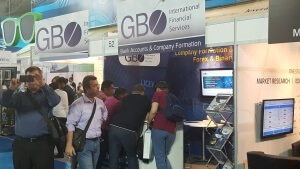GBO: Leading the Way in Forex Corporate Solutions
- Expertise: GBO is a leading Forex corporate service provider with turn-key solutions.
- Global Reach: We offer Forex company formation across multiple jurisdictions and licenses.
- Comprehensive Services:
- Seamless bank account openings
- Advanced payment and crypto solutions
- Robust Anti-Money Laundering (AML) protocols
- Trusted Legacy: GBO is Operating with excellence since 2009 with thousands of satisfied clients.
- Instant Support: Live WhatsApp support for real-time assistance.
- Our Promise: Fast, transparent, and professional service.
- Experience the GBO difference. Excellence, simplified.
Contact us to obtain Forex Broker License
1. Open your own Forex business
For those who are interested, getting into Forex brokerage is an exciting business that could pay off big. To be successful, you need to do a lot of research on the market. This means looking at the current trading situation, finding gaps in the market, and predicting how things will go in the future. Are you going to focus on day traders, long-term investors, or both?
If you see that people in Southeast Asia are becoming more interested in forex trading, you might want to make your services more relevant to them by offering trading tools and educational materials in different languages.
2. Setting up a forex company
There are several steps to setting up a forex company:
- Picking a jurisdiction: This is the most important thing. Your regulatory obligations, tax obligations, and operational costs will be affected by where you choose, whether it’s a major financial hub or an offshore location like Comoros or Moheli.
- Getting your business registered: This step can take a while, especially in places with a lot of rules. There is a lot of paperwork to do and licensing fees that could be very high.
- Operating infrastructure: This includes setting up a physical office, keeping trading platform servers safe, and making sure there are strong security measures in place.
- For example, many brokers choose offshore locations like Comoros or Moheli because the rules are less strict there, the registration process is faster, and the tax laws are better.
Forex Company Formation In-Depth:
Why You Need It:
Setting up a formal forex company is essential for credibility, operational efficiency, and regulatory compliance. A formally registered company gains the trust of traders, ensures you can operate in various jurisdictions, and offers protection from potential legal disputes.
When to Set Up the Company:
While it’s tempting to dive right into the forex market, it’s prudent to set up your company before you start any trading operations. This ensures that from day one, you’re operating within legal frameworks and can cater to clients worldwide.
Process of Setting Up the Company:
The process begins with selecting a jurisdiction, which dictates your regulatory obligations. Once chosen, you must register your company, which involves filling out paperwork, providing necessary documentation, and potentially undergoing financial and background checks.
Time:
The duration varies by jurisdiction. Major financial hubs might require several months due to their rigorous checks, while some offshore jurisdictions might only take a few weeks.
Forex Company Incorporation Cost:
This varies widely based on the jurisdiction and the complexity of your business. Major financial centers might involve higher fees but offer greater credibility. Offshore jurisdictions might be more cost-effective but could come with higher operational costs in the long run.
Forex Company Requirements:
Most jurisdictions mandate a physical office, a local director or representative, and a certain amount of starting capital. Additionally, they might require specific software, infrastructure, and cybersecurity measures.
Forex Company Document Requirements:
While specific documents can vary, generally, you’ll need a detailed business plan, proof of initial capital, identification documents of company stakeholders, and possibly even criminal background checks.
UBO (Ultimate Beneficial Owner) KYC:
Know Your Customer (KYC) procedures for UBOs are critical. This involves verifying the identity of individuals who ultimately own or control the forex company. It’s a measure to prevent money laundering, ensure transparency, and build trust with regulators and clients. Documents often include a passport copy, proof of address, and sometimes a reference from a bank or another financial institution.
3. A business plan for a forex broker
Your business plan shows you the way. It needs to go into detail about:
- If you’re doing a market analysis, you should learn more about market segmentation, competitor analysis, and possible barriers to entry.
- Services: List the instruments you’ll be selling, the range from common currencies to rare ones.
- Finances: An outlook for the next five years can help potential investors see things more clearly.
- Marketing plans: Write down your strategy for everything from digital ads to going to forex expos.
- For example, if your research shows that there is a group that isn’t getting enough attention, like millennials who want to trade forex through mobile apps, your business plan could focus on making a mobile trading platform that is easy for people to use.
4. Plan for starting a forex business
This plan should take a big-picture view:
- Organizational structure: Draw attention to important roles, such as those of the CEO and the heads of the trading and customer service teams.
- Management of risk: Talk about hedging strategies, limits on how much you can borrow, and ways to protect client funds.
- Vision for growth: Are there plans to merge, buy, or work with other companies?
- For example, in the beginning, you might want to work with bloggers and people who have a lot of followers in the financial world to get new clients.
Getting a license to trade forex is the fifth step.
Authorization from the government is needed:
- Courses, seminars, and workshops can help you learn more about forex.
- Certifications: Exams that depend on your location make sure you know all the details of trading in your area.
- To get a license, you will have to go through a strict process that includes background checks and financial audits.
- In Europe, people who want to trade forex often go after the CIF (Cyprus Investment Firm) license, which lets them do business all over the EU.
6. Setting up a forex brokerage
Go beyond the basics and look into:
- Choose a platform by thinking about the user interface, the tools that are available, and the ways that the platform can be customized.
- Newer platforms are coming out, but MT4 and MT5 are still the standard.
- Providers of liquidity: You can get better prices for your clients if you work with more than one provider.
- Methods of payment: It’s important to have a variety of options, from traditional bank transfers to e-wallets and cryptocurrencies.
- Developing your team professionally and training them all the time can help you stand out.
- For example, you can get a certain type of user by teaming up with a well-known e-wallet service in a target area, like WeChat Pay in China.
7. Types of Forex Jurisdictions
It’s very important to pick the right jurisdiction:
- Important jurisdictions: The U.S., the UK, and Australia are trustworthy, but they have strict rules.
- Offshore jurisdictions: Places like Belize, Seychelles, Comoros, and Moheli give you more freedom, but it might take some work to earn the trust of potential clients.
- For example, setting up shop in Moheli might make the process of setting up and running your business faster. But a strong marketing campaign might be needed to gain the trust of global traders.
In conclusion
Starting a forex brokerage business requires careful planning, a deep understanding of global markets, and a promise to follow all rules set by regulators. If you use the right strategies, you can make your forex business stand out in a crowded market by making it trustworthy, profitable, and long-lasting.
Trusted by clients around the world
GBO is a market-leading Anjouan Forex license services provider
FAQs on Forex Brokerage Licensing
1. How do I set up a forex company?
- Target Location: Decide on the jurisdiction that aligns with your business goals.
- Budgeting: Understand and consider the various costs associated with starting a forex broker.
- Registration: Officially register your forex brokerage company in your chosen jurisdiction.
- Tech Provider: Select a reputable technology provider to support your operations.
- Trading Platform: Opt for a platform that is widely recognized and trusted by traders.
- Liquidity Provider: Finalize and sign an agreement with a chosen Liquidity Provider to ensure seamless trading operations.
2. What is the cost of Forex company formation?
- Registration Fees: Varies depending on the jurisdiction and regulatory requirements.
- Technology and Platform Costs: Investment in robust technology and platforms can range widely based on features and capabilities.
- Operational Costs: Staffing, office space, marketing, and other day-to-day expenses.
- Licensing Fees: If applicable, fees associated with obtaining a trading license.
- Maintenance Costs: Yearly fees, audit costs, and other recurring expenses to keep the company compliant and operational.
3. What are the forex trading license requirements?
- Documentation: Proof of company registration, business plans, and financial forecasts.
- Capital Requirements: Some jurisdictions require a minimum capital to be held by the broker.
- Fit and Proper Test: Directors and key personnel must often pass integrity and competency tests.
- Operational Model: Detailed overview of your business operations, including tech infrastructure.
- AML and KYC Procedures: Robust Anti-Money Laundering and Know Your Customer protocols must be in place.
- Regular Reporting: Ongoing submission of financial statements and other relevant reports to regulatory bodies.










